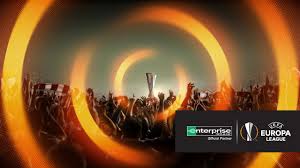By Paul Nicholson
October 7 – As a marketing tool football delivers though sponsorship sales are now more often referred to as ‘partnerships’ with exclusive ‘content’ options part of the package. The days of selling board signage, shirt positions and brand exposure as standalone package may not be entirely over, but they almost are.
A brand-led sports sponsorship panel at the Leaders in Sport conference in London gave the predominantly rightsholder audience the message that what they wanted from their sponsorship properties was no longer just a media buy with add-ons, but full and immersive engagement with that property.
Similarly the most switched-on rightsholders are looking to work closer with the sponsor brands to make sure they are promoted to the brand’s customer base.
Jim Stoeppler, VP European Brand Marketing at Enterprise Rent-A-Car which is now in the second year of a UEFA Europa League sponsorship, said: “Brands are getting more engaged. We want to know what the partnership looks like like not just for us but for other sponsors as well. We want to promote more and cast a wider net and they want us to promote to our customer base.”
Enterprise’s expansion of its European sports marketing into the Europa League, its first major sports property in Europe, was driven by a requirement to expand the brand and awareness. Enterprise has five corporate countries and 35 national operations in Europe. “The Europa League gave us the footprint,” said Stoeppler.
“We started with awareness (as the motivation for the sponsorship) but are moving to purchase metrics and purchase intent.”
That already signals a change in the relationship and the assessment of the sponsorship. Asked where he expected the sponsorship to be in five years time and assuming they were still with the Europa League, he said: “I expect we will be setting our activation plan with the Europa League in the same place. Not us doing it in isolation.”
The theme of brands becoming more involved and integrated into the sport was echoed by Intel’s VP sale and marketing EMEA Bernadette Andrietti, who said: “We want a partnership to showcase what we do. Our sponsorship talks are held years in advance…We want a sponsorship that demonstrates an experience that is amazing. We want it to be immersive, we want to be part of the experience.”
This is obviously easier for a computer technology that can find a way to integrate into the fabric of the event by nature of an application for its product. But even brands that can’t get as close to the action as Intel can, are activating exclusive content options and delivering them exclusively to their customers. This is a first step to the immersive experience and branding that brands are looking for. Primarily it is being delivered through social media and web technology, but that digital data experience and deeper data knowledge of the rightsholders’ fans will be increasingly important in the sales process as it becomes more sophisticated.
How far will brands take this? Will they move from sponsors of content to owners of IP? “If they are smart they will,” said Stoeppler. If proof is needed that this is already happening look at the Bundesliga with Bayer at Leverkusen, Red Bull at Leipzig and Adidas’ position in Bayern Munich.
This isn’t perhaps as new and revolutionary a concept as it might seem? Weren’t the original European football clubs more often than not works teams? And in China, club ownership is almost entirely in the hands of big industry – though not as a result of marketing reasons necessarily.
Contact the writer of this story at moc.l1745117446labto1745117446ofdlr1745117446owedi1745117446sni@n1745117446osloh1745117446cin.l1745117446uap1745117446

